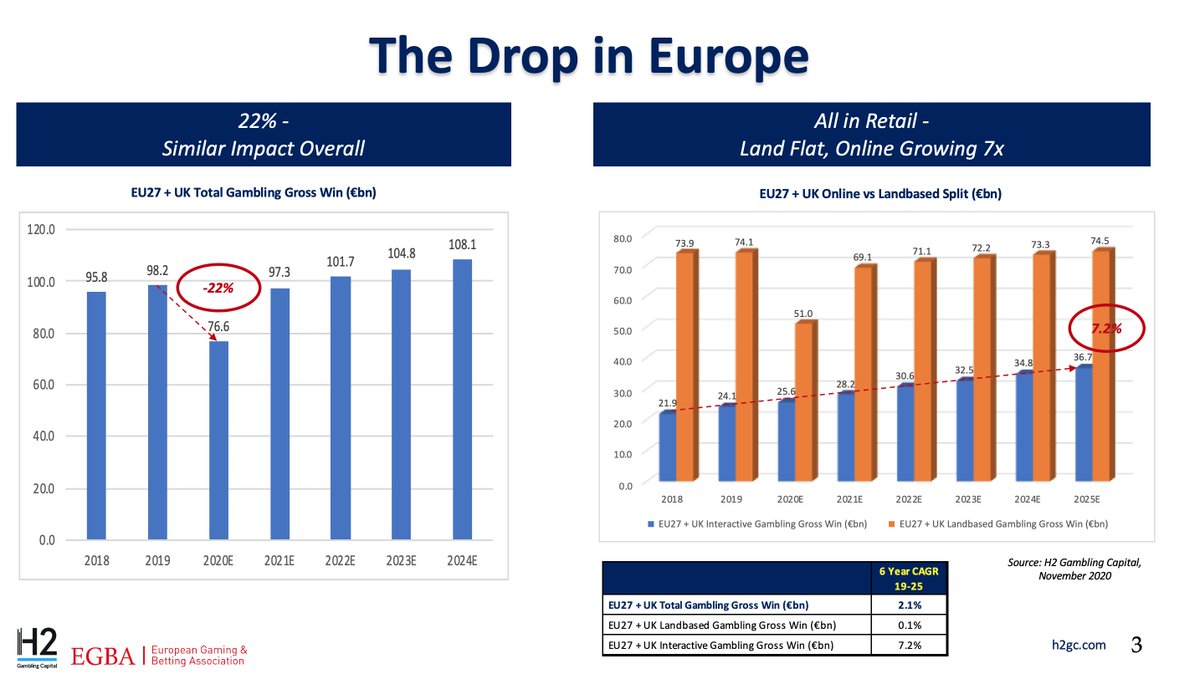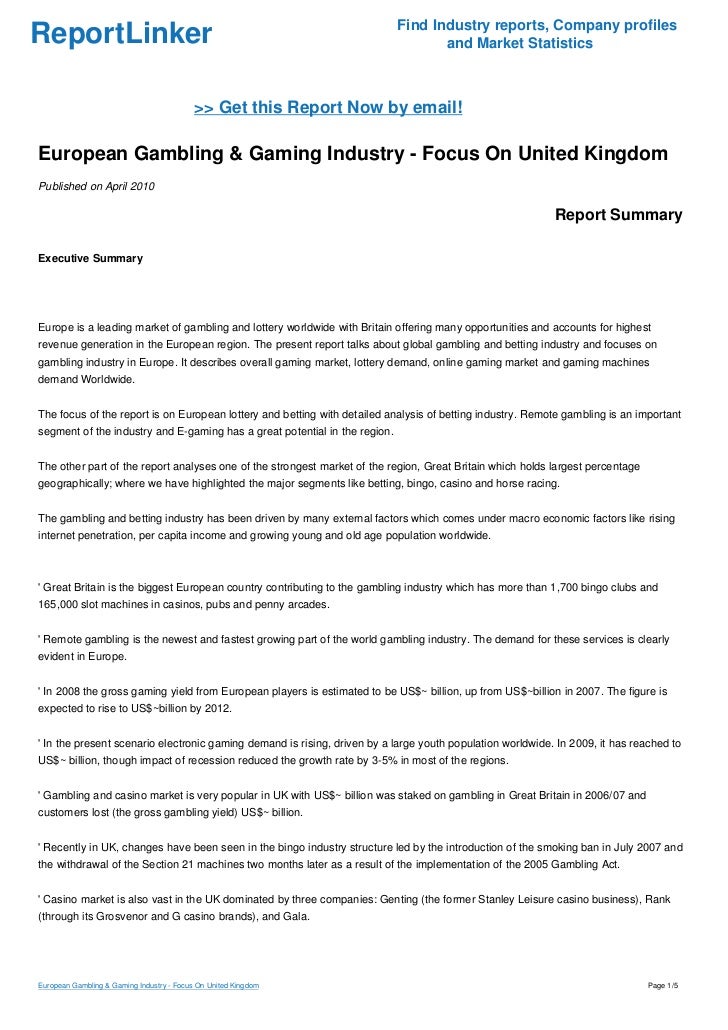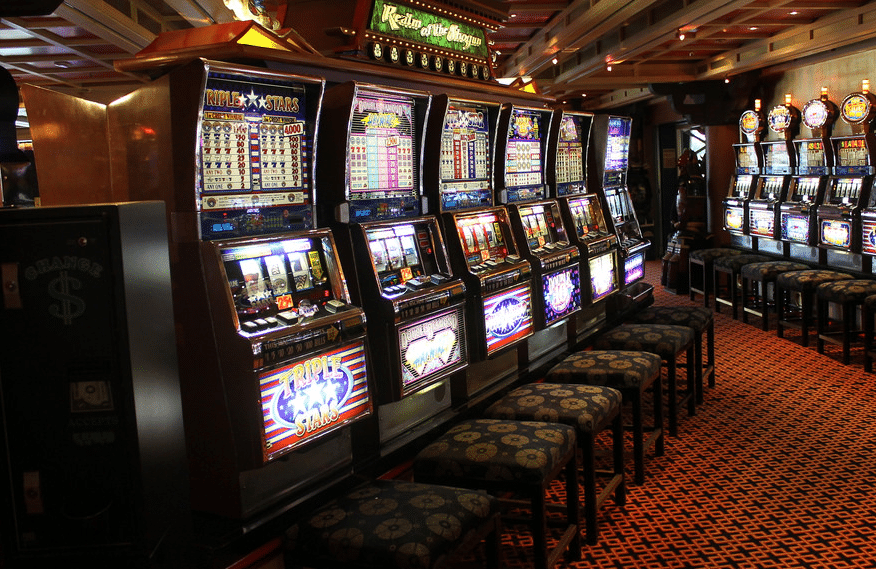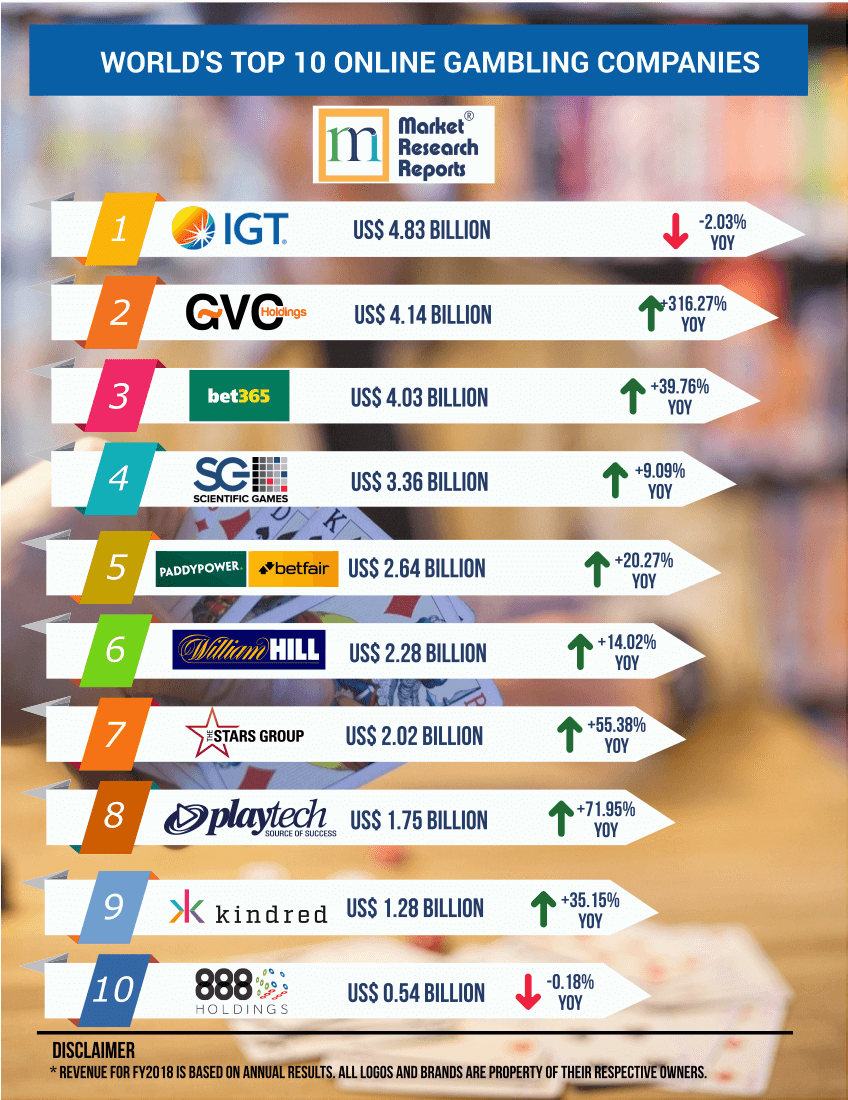Jastra Ilic February 17, 2020 February 17, 2020 No Comments on UK Gambling and Betting Industry to Drop to $79.8bn in Revenue this Year Higher tax, more rigid regulation, and government actions against addiction issues have affected the gambling and betting industry in the United Kingdom. The gambling industry, which generated £13.9 billion in revenue between 2017 and 2017, has very strong lobbying presence so these are changes that would be certain to be challenged. The fact that gambling is such a popular pastime also means that public support for these measures could be limited.
- Uk Gambling Industry Revenue Definition
- Uk Gambling Industry Revenue Companies
- Uk Gaming Industry Revenue
Golden mardi gras casino buffet albuquerque. A UK Gambling Commission report published earlier this year illustrated yet again how the UK gambling industry continues to make gains. The UKGC is the authority in charge of regulating gambling activities in the UK, whether they are land-based or online. The latest report covers the period from October 2016 to November 2017 and includes sections on changes within the sector itself, player behaviour and market trends.
The UKGC updates the public on what is happening within the industry twice a year, which means that everyone can get a good look at what kind of changes have been taking place. This means that both players and operators get a clear picture of how the UK-facing gambling industry is faring.
The data is based on the performance of casinos holding a UKGC license i.e. all casinos who offer their services to UK customers.
Remote Gambling Continues to Grow

For anyone who has followed this sector's progress over the years, it should come as no surprise that yet another increase was registered in the gross yield collected by gambling operators. The industry as a whole took in a total of £13.9 billion in the time period under study, which puts it at 0.7% higher than the previous year.
The UKGC also revealed that the market share of remote gambling grew by 1% between October 2016 and November 2017, compared to the previous year. With so many operators out there and different options for players, this is hardly unexpected. Online gambling alone took in £4.9 billion in gross yield, which equates to a 3.7% increase over the previous year.
Betting shops fared slightly worse this year. The UKGC reports that the number of betting shops within the territory had dropped by 3.2%, amounting to 8,532 in total. While this is by no means a small amount, it can indicate a trend towards online gambling instead of gambling in purpose-specific establishments.
The number of gaming machines also dropped slightly – there were 0.7% fewer machines, adding up to 183,928 in total across the UK. This number does not include machines that only require a local authority license.
Uk Gambling Industry Revenue Definition
While betting shops faltered, bingo premises experienced a modest improvement. There were 2% more bingo locations in the country than in March 2017, with 649 bingo halls in operation across the UK. Since March 2017, two new land-based casinos commenced operations, bringing the total number of UK casinos up to 152. Arcades saw a slump, with a 3.5% decline. A total of 1,810 licensed arcades are operating in the UK now.
There was a slight drop in the number of people employed in the UK gambling sector, with a 0.8% drop in September 2017 when compared to March 2017. At this time, 106,366 individuals were working within this industry.
The gambling industry in the UK contributes significantly to social causes, mainly through lotteries. These gambling activities help to fund projects and services in areas such as heritage, sport, arts, and charities across the country. The UKGC revealed that there was a small drop in the contributions that large scale lotteries made to social causes, bringing in 1.7% less than in the previous period. This still amounted to £251 million, which made all the difference for the recipients of these donations.
Higher tax, more rigid regulation, and government actions against addiction issues have affected the gambling and betting industry in the United Kingdom. According to data gathered by LeagueOfBetting.com, the revenue of the gambling and betting activities in the country is expected to amount to $79.8bn this year, or $3bn less compared to 2019 figures. The statistics indicate this downsizing trend is set to continue in the following years, with the gambling and betting industry income dropping to $70bn by 2024.
Gaming and Betting Industry Revenue Plunged 20% in Just Three Years
In 2014, the gaming and betting industry in the United Kingdom reached $114.3bn in revenue, revealed the Statista survey. It was the highest figure in the last seven years. By 2016, it dropped 17% to $94.47bn value. The next twelve months brought a recovery with the entire industry income rising to $101.2bn worth. However, in 2018, it plunged again to $86.3bn value and continued decreasing for around $3bn per year ever since.

Tighter government regulation and negative media coverage contributed to the UK gambling sector's first-ever decline in the gross gambling yield (GGY) last year. From April 2018 to March 2019, the regulated gambling industry in Great Britain generated a GGY of £14.4bn, or 0.3% less compared to the previous report.

Although remote and online gambling has increased substantially over the years, the significant part of total GGY decrease was caused by a reduction in the GGY of online gambling, as the most important industry sector.
In just four years, the number of new online gambling player registrations quadrupled and rose to 34.2 million in 2018. However, the UK Gambling Commission data revealed that in 2019, for the first time over the recorded period, the gross gambling yield of online gaming witnessed a 0.6% decrease and dropped to £5.3bn value.
The Number of Gambling and Betting Companies Drops Off
Tighter UK government rules, including stricter age and identity checks for online gambling and capping the maximum stake on terminals, already decreased the number of companies in the UK market. In 2019, the number of operators licensed by the Gambling Commission in Great Britain dropped to 2,689, or 4.6% less compared to the previous report.
In January, an international betting and casino website, Royal Panda announced it is leaving the UK market, telling customers they should withdraw funds before the end of the month.
Uk Gambling Industry Revenue Companies

Malta-based Slotty Vegas operator Max Entertainment withdraw from the UK market the same month, naming the UK's departure from the European Union as the reason.

For anyone who has followed this sector's progress over the years, it should come as no surprise that yet another increase was registered in the gross yield collected by gambling operators. The industry as a whole took in a total of £13.9 billion in the time period under study, which puts it at 0.7% higher than the previous year.
The UKGC also revealed that the market share of remote gambling grew by 1% between October 2016 and November 2017, compared to the previous year. With so many operators out there and different options for players, this is hardly unexpected. Online gambling alone took in £4.9 billion in gross yield, which equates to a 3.7% increase over the previous year.
Betting shops fared slightly worse this year. The UKGC reports that the number of betting shops within the territory had dropped by 3.2%, amounting to 8,532 in total. While this is by no means a small amount, it can indicate a trend towards online gambling instead of gambling in purpose-specific establishments.
The number of gaming machines also dropped slightly – there were 0.7% fewer machines, adding up to 183,928 in total across the UK. This number does not include machines that only require a local authority license.
Uk Gambling Industry Revenue Definition
While betting shops faltered, bingo premises experienced a modest improvement. There were 2% more bingo locations in the country than in March 2017, with 649 bingo halls in operation across the UK. Since March 2017, two new land-based casinos commenced operations, bringing the total number of UK casinos up to 152. Arcades saw a slump, with a 3.5% decline. A total of 1,810 licensed arcades are operating in the UK now.
There was a slight drop in the number of people employed in the UK gambling sector, with a 0.8% drop in September 2017 when compared to March 2017. At this time, 106,366 individuals were working within this industry.
The gambling industry in the UK contributes significantly to social causes, mainly through lotteries. These gambling activities help to fund projects and services in areas such as heritage, sport, arts, and charities across the country. The UKGC revealed that there was a small drop in the contributions that large scale lotteries made to social causes, bringing in 1.7% less than in the previous period. This still amounted to £251 million, which made all the difference for the recipients of these donations.
Higher tax, more rigid regulation, and government actions against addiction issues have affected the gambling and betting industry in the United Kingdom. According to data gathered by LeagueOfBetting.com, the revenue of the gambling and betting activities in the country is expected to amount to $79.8bn this year, or $3bn less compared to 2019 figures. The statistics indicate this downsizing trend is set to continue in the following years, with the gambling and betting industry income dropping to $70bn by 2024.
Gaming and Betting Industry Revenue Plunged 20% in Just Three Years
In 2014, the gaming and betting industry in the United Kingdom reached $114.3bn in revenue, revealed the Statista survey. It was the highest figure in the last seven years. By 2016, it dropped 17% to $94.47bn value. The next twelve months brought a recovery with the entire industry income rising to $101.2bn worth. However, in 2018, it plunged again to $86.3bn value and continued decreasing for around $3bn per year ever since.
Tighter government regulation and negative media coverage contributed to the UK gambling sector's first-ever decline in the gross gambling yield (GGY) last year. From April 2018 to March 2019, the regulated gambling industry in Great Britain generated a GGY of £14.4bn, or 0.3% less compared to the previous report.
Although remote and online gambling has increased substantially over the years, the significant part of total GGY decrease was caused by a reduction in the GGY of online gambling, as the most important industry sector.
In just four years, the number of new online gambling player registrations quadrupled and rose to 34.2 million in 2018. However, the UK Gambling Commission data revealed that in 2019, for the first time over the recorded period, the gross gambling yield of online gaming witnessed a 0.6% decrease and dropped to £5.3bn value.
The Number of Gambling and Betting Companies Drops Off
Tighter UK government rules, including stricter age and identity checks for online gambling and capping the maximum stake on terminals, already decreased the number of companies in the UK market. In 2019, the number of operators licensed by the Gambling Commission in Great Britain dropped to 2,689, or 4.6% less compared to the previous report.
In January, an international betting and casino website, Royal Panda announced it is leaving the UK market, telling customers they should withdraw funds before the end of the month.
Uk Gambling Industry Revenue Companies
Malta-based Slotty Vegas operator Max Entertainment withdraw from the UK market the same month, naming the UK's departure from the European Union as the reason.
Uk Gaming Industry Revenue
The number of licensed operators might witness an even more significant drop, as the government announced a new restriction in February. As a part of the plan against gambling addiction, the government restricted the use of credit cards for betting. According to UK Finance data, around 800,000 UK residents use credit cards to gamble, and 22 percent of them are problem gamblers. This recent ban will come into effect in April and apply to all online and offline gambling products.